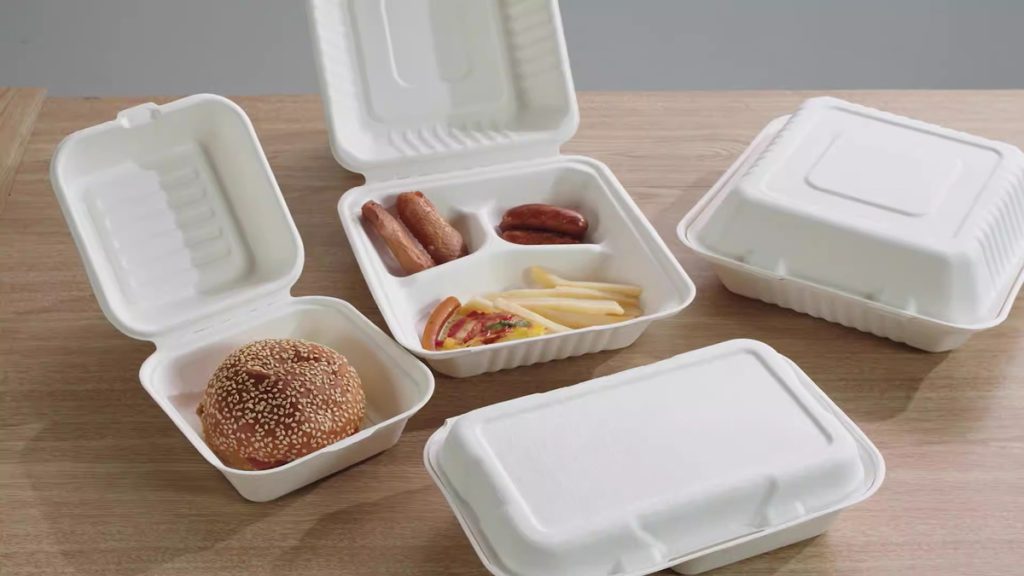🌏 Introduction
Thailand’s street food culture and booming tourism have driven massive consumption of single-use food packaging. In 2025, the government introduced sweeping policies to combat plastic pollution, enhance food safety, and promote sustainability. For packaging and foodservice businesses, these changes demand immediate compliance and strategic adaptation.

🚫 1. Complete Ban on Plastic Waste Imports
As of 1 January 2025, Thailand has implemented a full ban on importing plastic waste. This landmark decision was formalised in late 2024 through amendments to the Customs Tariff Schedule and published in the Royal Gazette.
✅ Why this matters:
- Thailand is rejecting its role as a “dumping ground” for foreign plastic waste.
- The ban closes a loophole that previously allowed recycling companies to import low-grade plastics, often leading to illegal dumping or open burning.
The Guardian notes this move is part of a broader regional trend, following China, Vietnam, and Malaysia’s restrictions on foreign plastic imports.
📜 2. Plastic Waste Management Roadmap: 2018–2030
Thailand’s Plastic Waste Management Roadmap is the backbone of its sustainability vision. The strategy sets phased targets:
✔ 2018–2022: Ban on lightweight plastic bags, foam containers, single-use cups, and straws.
✔ 2023–2027: Elimination of OXO-degradable plastics, microbeads, and unnecessary seals.
✔ By 2030: Full compliance with circular economy principles, focusing on recyclable, compostable, and reusable food packaging.
This roadmap provides clarity for businesses, encouraging early adoption of eco-friendly alternatives.
🍲 3. Food-Contact Plastic Regulations: Stricter Safety Standards
Food safety is critical in packaging design. In June 2022, Thailand introduced new legislation for food-contact plastics, aligning with international norms:
🔍 Key provisions:
- Heavy metal and primary aromatic amine migration limits.
- Approved material specifications for plastic articles.
- Transition period for legacy products until 17 June 2025.
These regulations reduce the risk of chemical migration into food, ensuring safer packaging for consumers and boosting export credibility.
🥡 4. Street Food and the Fight Against Single-Use Plastics
Thailand’s vibrant street food scene, while culturally iconic, is a major generator of plastic waste. The government has launched initiatives to:
✅ Replace foam containers with biodegradable bagasse trays.
✅ Promote reusable container schemes with deposit incentives.
✅ Conduct public education campaigns targeting vendors and tourists.
By 2026, the target is to phase out all foam-based food packaging in markets and festivals, marking a significant cultural and environmental shift.
♻️ 5. Sustainable Packaging Act & Extended Producer Responsibility (EPR)
One of the most anticipated moves is the draft Sustainable Packaging Act, which introduces Extended Producer Responsibility (EPR):
📌 Key features under consideration:
- Environmental impact fees on hard-to-recycle packaging.
- Mandatory recycling and recovery targets for food packaging manufacturers.
- Deposit-refund systems for beverage containers and takeaway packaging.
Once passed, this will make Thailand a regional leader in circular economy practices.

📊 6. Economic Impact on Businesses
While these policies aim to protect the environment, they also introduce operational and financial challenges for businesses:
- Cost Implications: Switching to biodegradable or compostable food packaging can be 15–25% more expensive initially.
- Supply Chain Adjustments: Businesses must identify certified suppliers, often requiring bio-based materials such as PLA or bagasse.
- Compliance Risk: Non-compliance could result in penalties, import restrictions, or brand damage.
However, these changes also open new market opportunities. Eco-conscious consumers in Thailand and abroad increasingly favour brands that adopt sustainable packaging.
📈 7. Thailand in the Global Sustainability Context
Thailand’s strategy reflects a global packaging trend: regulators are prioritising circular economy models and zero-plastic goals. Countries in the EU, Japan, and South Korea have already adopted similar bans and EPR laws.
For exporters, aligning with Thailand’s rules also facilitates access to other international markets, since compliance standards often overlap.
✅ Conclusion
Thailand’s 2025 reforms mark a turning point for the packaging industry. From banning plastic waste imports to implementing food-contact safety rules and planning for EPR, these measures signal a systemic shift toward sustainability.
Businesses should act now:
✔ Transition to recyclable or compostable packaging.
✔ Audit food-contact safety compliance.
✔ Prepare for EPR obligations and reporting systems.
The packaging industry is evolving, and those who adapt early will secure compliance, reduce risks, and win consumer trust in a sustainability-driven marketplace.

📚 References
- Thailand bans all plastic waste imports – Resource.co
https://resource.co/article/thailand-bans-all-plastic-waste-imports - Thailand Plastic Waste Roadmap – Wikipedia
https://en.wikipedia.org/wiki/Environmental_issues_in_Thailand - Thailand issues new legislation for food-contact plastics – SGS
https://www.sgs.com/en/news/2022/07/safeguards-08222-thailand-issues-new-legislation-for-food-contact-plastics - Thailand adopts standards on plastic bags – Food Packaging Forum
https://foodpackagingforum.org/news/thailand-adopts-two-standards-on-plastic-bags - Reducing Single-Use Plastic in Street Food Markets – Mekong Institute
https://mekonginstitute.org/wp-content/uploads/2025/03/Reducing-Single-Use-Plastic-in-Street-Food-Markets-in-Thailand_final.pdf - Sustainable Packaging Act Draft – Enviliance
https://enviliance.com/regions/southeast-asia/th/th-waste/th-packaging-act - CP Group’s Sustainable Packaging Policy – Greenpeace Southeast Asia
https://www.greenpeace.org/southeastasia/press/64616/cp-groups-sustainable-packaging-policy-falls-short-in-addressing-the-root-cause-of-plastic-pollution-greenpeace-thailand-analysis/ - Thailand bans plastic imports to curb toxic pollution – The Guardian
https://www.theguardian.com/environment/2025/jan/07/thailand-bans-imports-plastic-waste-curb-toxic-pollution
